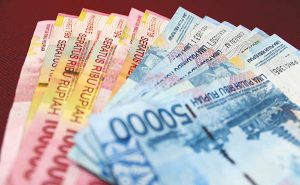Bloomberg
Bank Indonesia stepped in to prop up the rupiah for a second day, joining a host of other policy makers which are pushing back against a surging dollar.
Indonesian authorities are intervening in the spot and domestic non-deliverable forwards markets to prevent the rupiah from weakening excessively, Edi Susianto, executive director of monetary management, said in a text message. The currency erased a loss of as much as 0.3% against the greenback after his comments.
From Japan to South Korea and India, Asia’s policy makers are stepping up the defense of their currencies as the dollar’s rally shows few signs of easing. Bank Indonesia has also deployed its own version of Operation Twist — selling short-term notes and buying up longer ones — in an effort to shore up the rupiah.
Bank Indonesia had spent $4.21 billion of its foreign-exchange reserves in July as it sought to limit the rupiah’s losses amid the nation’s widening rate gap with the US.
The rupiah traded little changed at 15,123 per dollar as at 3.33 p.m. local time after sliding to 15,171 earlier, the weakest since April 2020.
Still, it’s worth noting that Indonesia’s currency has held up relatively well since the dollar started rallying last month. It has fallen less than 2% since Aug. 10, beating all but one of its Asian peers.
Elevated commodity prices have buttressed the nation’s trade surplus, while stock inflows and Indonesia’s robust growth also helped shield the rupiah against the worst of the dollar’s onslaught.
“Psychologically, it’s still important to slow depreciation pressures against the dollar so that spillover drags from current elevated US Treasury yields are contained,†said Yanxi Tan, a strategist at Malayan Banking Berhad in Singapore. “The relative resilience of the rupiah, which is seeing support from benign trade surpluses and BI rate
 The Gulf Time Newspaper One of the finest business newspapers in the UAE brought to you by our professional writers and editors.
The Gulf Time Newspaper One of the finest business newspapers in the UAE brought to you by our professional writers and editors.
